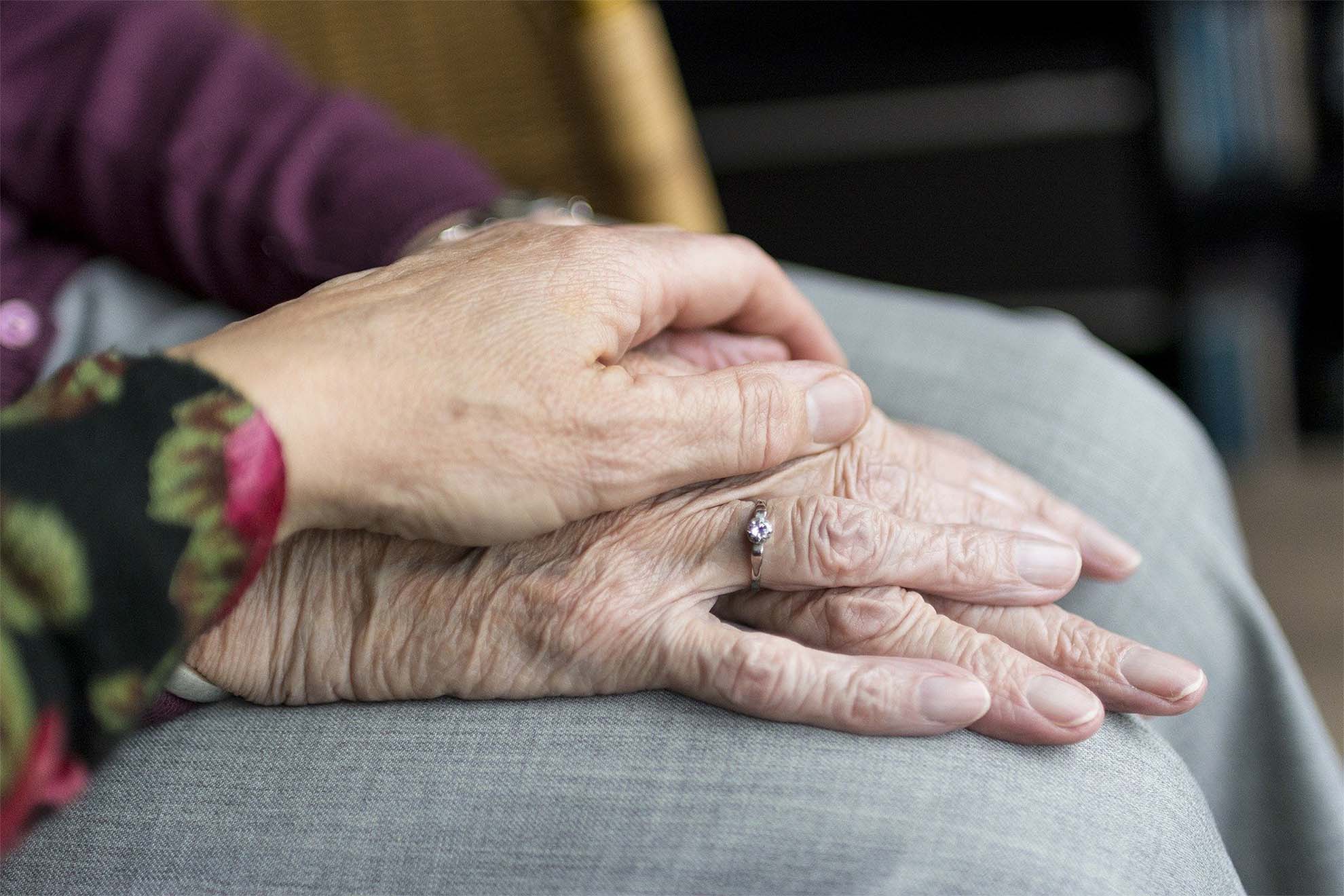What Is Holistic Nursing Care?

As it has developed, holistic nursing care has been recognised as a vital approach within modern nursing practice, especially in care home settings. For care seekers considering nursing care, understanding what holistic care means and how it differs from traditional models can help in making an informed decision about the right environment for themselves or a family member. This blog explores the principles and benefits of holistic nursing care, how it is delivered, and its impact on residents’ well-being.
What Is Holistic Care in Nursing?
Holistic care in nursing refers to an approach that considers the whole person, not just the physical health or medical needs, but also the emotional, social and spiritual aspects. Rather than focusing solely on treating illness or managing symptoms, holistic nursing care seeks to understand and nurture every aspect of a resident’s life.
Holistic nursing is grounded in the belief that each individual is unique, down to their values, experiences and needs. Nurses who practice holistic nursing care take time to listen, build strong relationships and tailor their care to the person. This approach is particularly valuable in care homes, where residents may be living with multiple health challenges, adjusting to new environments, or seeking comfort and dignity in later life.
What Are the Main Principles of Holistic Nursing Care?
Respect for Individuality
Holistic nursing care is built on a foundation of respect for each person’s individuality. Each individual has their own life story and it's essential to make this a central part of their care journey. Care plans are developed in collaboration with residents and their families, ensuring that personal preferences, spiritual beliefs, and cultural backgrounds are honoured. This partnership approach means that care is never one-size-fits-all, but is thoughtfully tailored to support each resident’s unique journey.
Emotional Support
Emotional support is a vital aspect of holistic nursing care. Nurses provide a safe and supportive environment where residents can express their feelings, worries and joys. This might involve regular conversations, encouragement, or simply being present during challenging times. Emotional support helps residents navigate the transitions and adjustments that often come with moving into a care home or facing changes in health. By addressing emotional well-being alongside physical care, holistic nursing helps residents find comfort in their daily lives.
Spiritual Care
With spiritual care, nurses respect and support residents’ spiritual needs, whether this is through facilitating access to religious services, providing opportunities for prayer and reflection, or simply listening to residents’ beliefs and values. Spiritual care is not limited to formal religion. It can also involve helping residents find meaning, purpose, or peace in their lives, which can help them feel at home.
Integration of Alternative Therapies
Holistic nursing practice might involve therapies such as hand massages, aromatherapy, relaxation exercises, or creative arts. These are chosen based on residents’ preferences and needs and are used to reduce stress and improve their overall well-being. The incorporation of these therapies in a care home setting can reflect a commitment to treating each resident as a full individual and recognising the value of a personalised care approach.
Collaboration and Communication
Effective holistic care relies on open communication and collaboration among nurses, residents, family members and other healthcare professionals. Care teams work closely with those around them to ensure that every aspect of a resident’s care is coordinated and responsive to changing needs. Regular meetings and ongoing communication help ensure that care plans remain up to date and that residents’ voices are always heard. This collaborative approach builds trust and ensures that care is delivered in a seamless, compassionate manner.


What Is the Difference Between Traditional and Holistic Nursing Care?
Focus of Care
Traditional nursing care is typically focused on diagnosing and treating specific illnesses or conditions, with an emphasis on physical health and medical interventions. The primary goal is to restore health or manage symptoms using established protocols and evidence-based treatments. While this approach is essential for addressing acute medical needs, it may not always address the broader aspects of a resident’s well-being.
Holistic nursing care, on the other hand, adopts a broader perspective. Nurses consider not only the resident’s physical health but also their emotional, social, and spiritual needs. The holistic model recognises that health is dynamic and that improving a resident's quality of life requires more than just medical attention.
Relationship with Residents
In traditional nursing care, the nurse’s role is often focused on clinical tasks and following prescribed treatments. Interactions are centred on addressing immediate health concerns and nurses don't typically get involved in any non-medical tasks. In holistic nursing care, the nurse’s role expands to include building meaningful relationships with residents, getting involved in activities with them and becoming like an extended member of the family. This relationship-based approach helps residents feel valued and supported throughout their entire care journey.
Care Personalisation
Traditional care may rely on standardised protocols and routines, with less emphasis on individual preferences or life history. Holistic nursing care is highly personalised, with care plans tailored to each resident’s unique needs, history, goals and aspirations. These health care plans are also reviewed on a regular basis to ensure they still align with the values of each resident.
Who Does Holistic Nursing Care Benefit?
Current Care Home Residents
Holistic nursing care is particularly beneficial for older adults already in a care home who may be living with complex medical conditions. This approach addresses the full spectrum of their needs and supports every aspect of their life. When someone feels like all aspects of their life are celebrated and prioritised, it can help them feel more at home and improve their quality of life.
Residents Making the Transition to a Care Home
Moving into a care home can be a significant transition, often accompanied by feelings of uncertainty or anxiety. Holistic care provides vital emotional support, helping residents adjust to new routines, build relationships and establish a sense of community. Through attentive listening and encouragement, nurses can help residents quickly feel at home and maintain their sense of identity.
Families and Loved Ones
Holistic nursing care also extends support to families as it offers reassurance that their relative is cared for in a way that honours their identity and values. Regular communication and involvement in care planning help families feel included and more at ease as they know that their loved one’s well-being is a top priority for the nursing home.
Nursing Professionals
Nurses themselves also benefit from practising holistic care as it allows them to foster deeper, meaningful relationships with residents that give them a greater sense of achievement. It also encourages personal growth, job satisfaction and a sense of purpose within the home they work for.



What Is the Impact of Holistic Care on Residents’ Well-Being?
Enhanced Dignity and Autonomy
Holistic nursing care empowers residents to maintain dignity and autonomy, even as their health needs change. By involving residents in care planning and respecting their choices, nurses help individuals retain control over their lives and daily routines. This sense of independence is vital for self-esteem and overall well-being.
Improved Health Outcomes
Care homes have found that providing holistic care throughout their services can lead to improved health outcomes. Residents often experience better management of chronic conditions, enhanced pain control and quicker recovery from illness or surgery when they feel supported in every aspect of life.
Increased Satisfaction
Residents who receive holistic nursing care frequently report higher levels of satisfaction with their care experience. They feel heard, respected and valued as individuals, rather than just as recipients of medical treatment. This satisfaction contributes to a more positive atmosphere in the care home and fosters a sense of community.
Support for Mental Health
The holistic approach places a strong emphasis on mental health, recognising its importance for overall well-being. Through emotional support, social engagement and tailored activities, holistic nursing care helps residents focus on the things they love doing most. This is especially important for those experiencing isolation or significant life changes.
Holistic Nursing Care at Valerian Court Care Home
At Valerian Court Care Home, holistic care is at the heart of everything we do. Whether our residents receive nursing care, residential care, dementia care, respite care or palliative care, they can benefit from a warm, supportive environment where physical health and emotional support are seamlessly integrated. We have a dedicated and experienced team who deliver the highest levels of care that respects each resident on an individual basis, encourages their independence and creates a true sense of belonging.
Before a resident moves in with us, we take the time to collaborate with them and their loved ones to create a care plan that outlines all aspects of their life, including their history, medical needs, typical routine, favourite hobbies, dietary preferences and general likes and dislikes. Whether we are providing support with daily tasks, involving them in their favourite activities or simply offering companionship and conversation, the focus is always on the individual.
For those interested in discovering the difference that holistic nursing care can make, we welcome you to book a tour at Valerian Court. Our compassionate team would love to welcome you and support you as you begin your next chapter.






